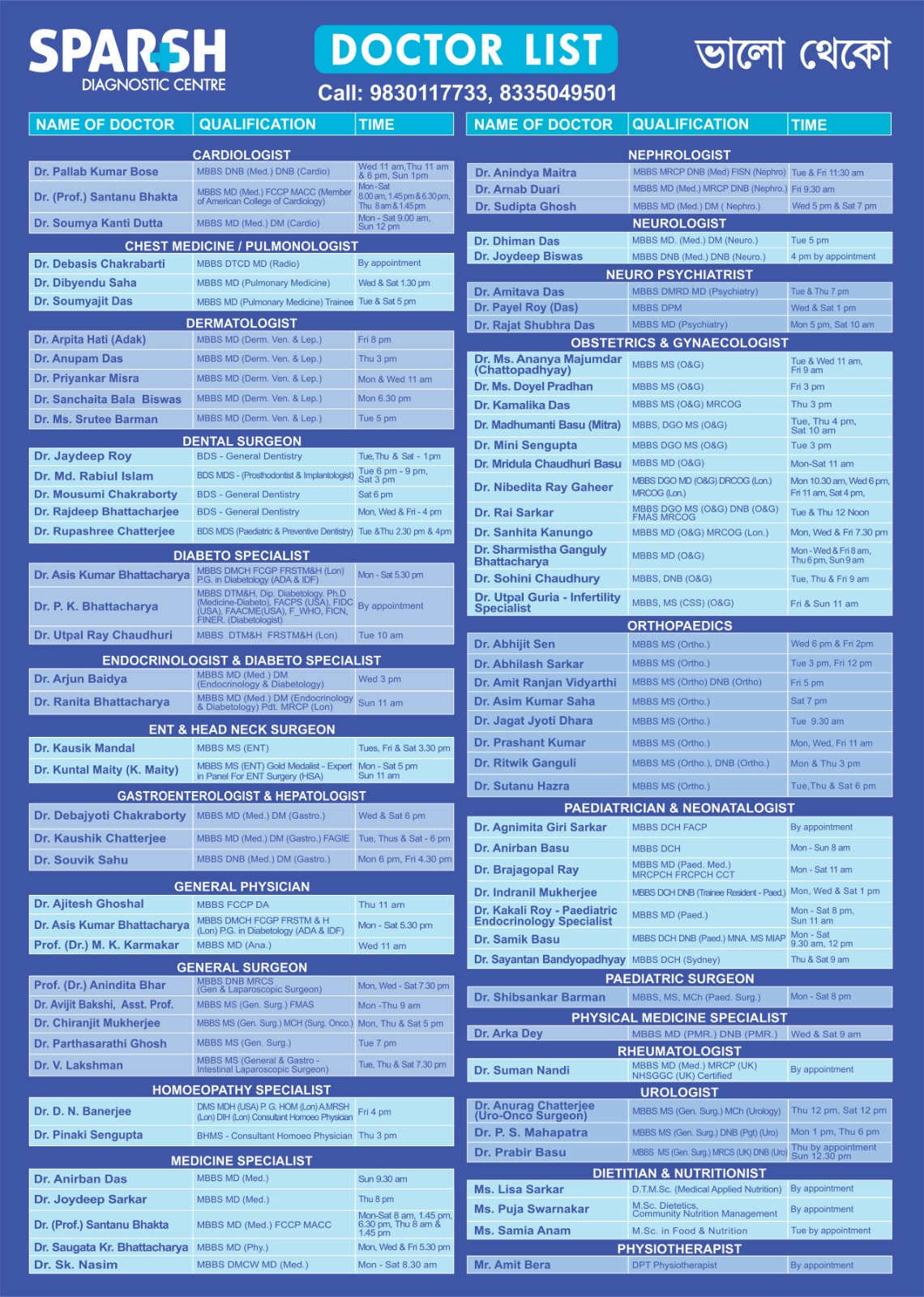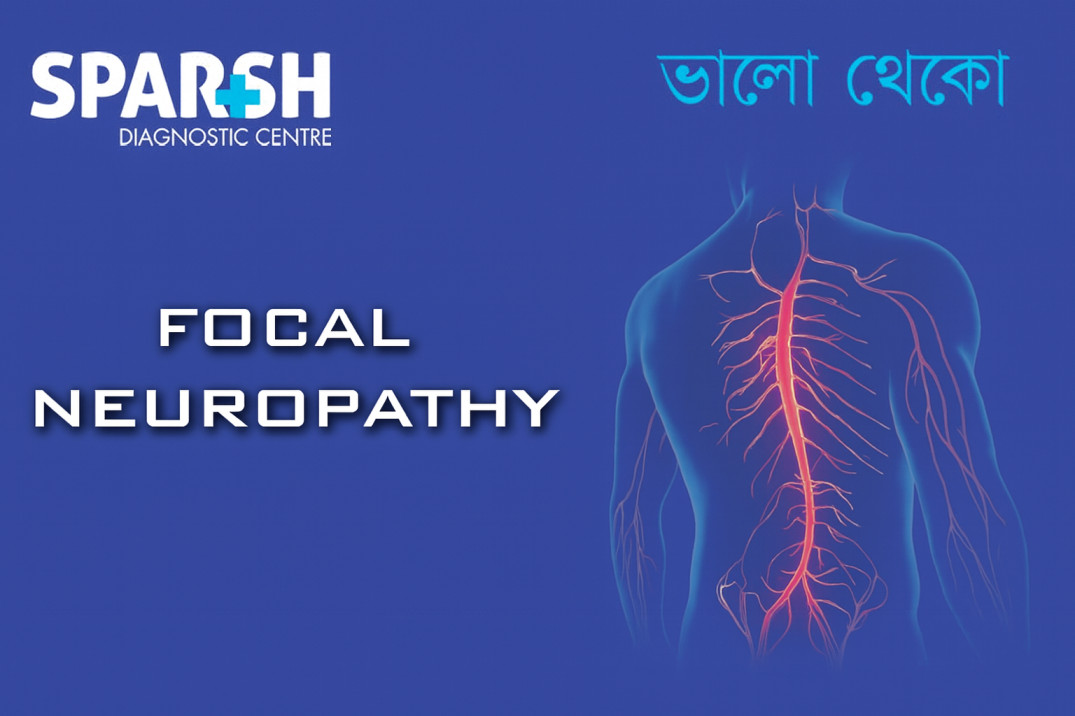Focal neuropathy, also known as mononeuropathy, is a type of nerve damage affecting a single nerve or a specific nerve group. While neuropathies often develop gradually, focal neuropathy can appear suddenly, causing sharp, intense pain or functional impairment in the affected area. It is commonly associated with underlying conditions like diabetes, trauma, repetitive strain, or compression, but can sometimes occur without a clear cause.
Understanding focal neuropathy is crucial because early diagnosis and timely treatment significantly improve outcomes. This comprehensive guide explores the causes, symptoms, diagnosis, treatment, and preventive measures related to focal neuropathy.
What is Focal Neuropathy?
Focal neuropathy occurs when damage affects a single peripheral nerve. Unlike polyneuropathy, which involves widespread nerve dysfunction, focal neuropathy presents in localized areas such as the face, hands, chest, legs, or abdomen.
It can impair motor function, sensory perception, or both. Pain, numbness, or weakness can be severe and sudden, often alarming patients. Although it can cause significant discomfort, focal neuropathy often improves with appropriate treatment.
Types of Focal Neuropathy
Focal neuropathy can affect various parts of the body. Some common types include:
1. Cranial Neuropathies
These involve cranial nerves in the head. Examples include:
Third nerve palsy: Causes drooping eyelids and double vision.
Bell’s palsy: Paralysis of facial muscles due to facial nerve involvement.
2. Peripheral Mononeuropathies
These affect individual peripheral nerves:
Median nerve neuropathy: Often associated with carpal tunnel syndrome.
Ulnar nerve neuropathy: Causes numbness in the ring and little fingers.
Peroneal nerve neuropathy: Leads to foot drop.
3. Truncal Neuropathy
Affects nerves in the torso or abdomen, often producing sharp, band-like pain.
4. Femoral Neuropathy
Causes weakness in the thigh muscles and difficulty walking.
Causes of Focal Neuropathy
Several conditions and factors can contribute to the development of focal neuropathy:
1. Diabetes
Diabetes is a major cause of nerve damage due to prolonged high blood sugar levels. Focal neuropathy is more common among older adults with diabetes and those with long-term poor glycemic control.
2. Physical Trauma
Accidents, falls, and fractures can directly injure nerves.
3. Compression
Prolonged pressure on nerves due to:
Repetitive motions (e.g., typing or using tools)
Poor posture
Prolonged bed rest
Tumors or cysts pressing on nerves
4. Infections
Certain viral or bacterial infections can cause inflammation that damages nerve fibers.
5. Autoimmune Diseases
Conditions like Guillain-Barré syndrome or vasculitis can affect specific nerves.
6. Nutritional Deficiencies
Lack of vitamin B12 or other essential B-complex vitamins can impair nerve function.
7. Idiopathic Causes
In many cases, the exact reason remains unknown.
Signs and Symptoms of Focal Neuropathy
Symptoms vary depending on the nerve involved. They typically appear suddenly and can include:
Sensory Symptoms
Sharp or burning pain
Heightened sensitivity to touch
Motor Symptoms
Difficulty lifting objects or performing fine movements
Drooping of facial muscles
Trouble walking (if leg nerves are involved)
Pain-Related Symptoms
Localized intense pain
Pain during movement or at rest
Sudden episodes of severe discomfort
Symptoms by Location
Eye: Double vision, drooping eyelid
Face: Slurred speech, facial asymmetry
Hands/wrists: Grip weakness, numb fingers
Feet/legs: Foot drop, limping
Torso: Radiating or band-like chest/abdominal pain
How Focal Neuropathy is Diagnosed
Accurate diagnosis involves a combination of clinical evaluation, nerve tests, and imaging studies. The doctor may recommend:
1. Physical and Neurological Examination
To assess muscle strength, reflexes, and sensory function.
2. Electromyography (EMG)
Evaluates electrical activity of muscles to detect nerve dysfunction.
3. Nerve Conduction Studies (NCS)
Measures how quickly electrical signals travel through nerves.
4. Imaging Tests
MRI, CT scan, or ultrasound may be used to detect nerve compression or structural abnormalities.
5. Blood Tests
To check for:
Blood sugar levels
Vitamin deficiencies
Autoimmune markers
Infections
6. Lumbar Puncture (Rare)
Used if an inflammatory or autoimmune cause is suspected.
Treatment for Focal Neuropathy
Treatment focuses on addressing the underlying cause, relieving symptoms, and preventing further nerve damage.
1. Medication
Pain relievers: NSAIDs or stronger prescription medicines
Anticonvulsants: Such as gabapentin or pregabalin for nerve pain
Antidepressants: Certain types help reduce nerve-related pain
Steroids: Reduce inflammation if caused by autoimmune disorders
Antibiotics/antivirals: If an infection is responsible
2. Physical Therapy
Physical therapy helps:
Improve mobility
Strengthen weakened muscles
Prevent stiffness
Restore normal function
3. Lifestyle & Self-Care
Maintaining good posture
Regular stretching
Avoiding repetitive strain
Using supportive braces (e.g., wrist or ankle braces)
4. Treating Underlying Conditions
Diabetes management: Maintaining healthy blood sugar levels
Vitamin supplementation: Especially B-complex vitamins
Weight management: Reduces nerve compression
5. Surgical Intervention
Required when:
There is significant nerve compression
Tumors or cysts are pressing on nerves
Conservative treatments fail
6. Alternative Therapies
Acupuncture
Chiropractic care
Relaxation techniques
These may help manage symptoms but should complement, not replace, medical treatment.
Complications of Focal Neuropathy
If untreated, focal neuropathy can lead to:
Muscle atrophy
Reduced mobility
Increased risk of falls
Permanent nerve damage
Proper medical care significantly reduces these risks.
Prevention Tips
While not all cases of focal neuropathy can be prevented, the following measures can lower risk:
For Everyone
Maintain a healthy weight
Avoid repetitive strain
Practice proper ergonomics
Stay physically active
Ensure adequate vitamin intake
For People with Diabetes
Monitor and control blood sugar
Get regular nerve health screenings
When to See a Doctor
Seek medical help if you experience:
Sudden or severe localised pain
Unexplained weakness
Facial drooping
Vision changes
Persistent tingling or numbness
Difficulty walking
Early medical intervention improves recovery and prevents complications.
FAQ Section
1. Is focal neuropathy reversible?
In many cases, yes. If the underlying cause is treated early, symptoms often improve or resolve completely. However, severe or long-standing nerve damage may be permanent.
2. How long does it take to recover from focal neuropathy?
Recovery varies widely—from a few weeks to several months—depending on the cause, severity, and treatment.
3. Is focal neuropathy common in diabetics?
Yes. People with long-term or poorly controlled diabetes are at higher risk of developing focal neuropathy.
4. Can stress cause focal neuropathy?
Stress alone does not cause nerve damage, but it can worsen the perception of pain and interfere with recovery.
5. Which vitamins help nerve repair?
B-complex vitamins, especially B1, B6, and B12, are essential for nerve health and regeneration.
6. Does exercise help focal neuropathy?
Yes. Gentle exercises, guided physical therapy, and stretching improve strength, flexibility, and nerve function.
7. Can focal neuropathy cause paralysis?
Severe cases may lead to temporary loss of function, but paralysis is rare and usually reversible with treatment.
8. How is focal neuropathy different from peripheral neuropathy?
Focal neuropathy affects one nerve or region, while peripheral neuropathy affects multiple nerves throughout the body.
Focal neuropathy is a localized nerve disorder that can cause sudden pain, weakness, or sensory changes. While it may seem alarming, most cases respond well to timely treatment. Understanding the symptoms and risk factors is key to seeking early medical help. With proper diagnosis, personalized treatment, and proactive lifestyle changes, full recovery is often achievable.
If you or someone you know is experiencing symptoms of focal neuropathy, consult a neurologist or healthcare professional for accurate diagnosis and treatment guidance.
If you or a loved one is experiencing symptoms, don’t wait. Book a consultation with our expert neurologists at Sparsh Diagnostic Centre today.
📍Sparsh Diagnostic Centre
📞 Call: 9830117733 / 8335049501
🌐 www.sparshdiagnostica.com
🕒 Open: Mon to Sat – 7 AM to 9 PM | Sunday – 7 AM to 3 PM
#BhaloTheko
Disclaimer:
No content on this site, regardless of date, should ever be used as a substitute for direct medical advice from your doctor or other qualified clinician.

![]()





